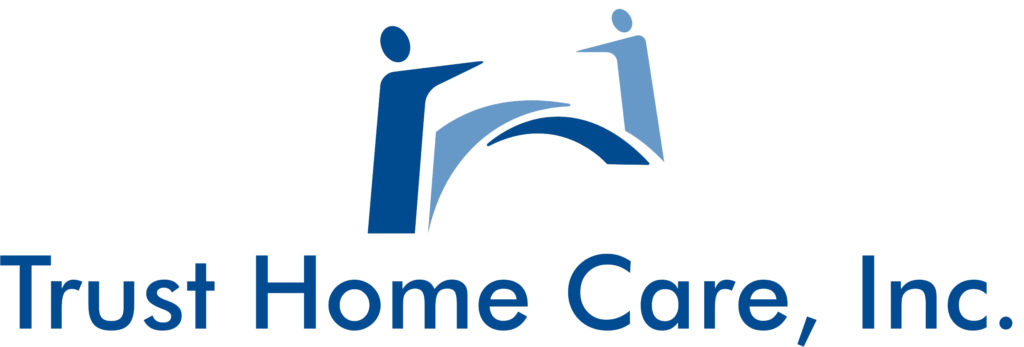If you or a loved one have recently received medical care in a facility or at home through a nurse agency, you’ve interacted with nursing professionals. Because nurses and certified nursing assistants (CNAs) have different titles and duties, it’s not always easy to understand what role each plays when assisting patients and families.
Read on to learn more about the different types of nurses and nursing professionals in Bowie, as well as the services they provide while working in various care settings, including home health care.
Licensed Practical Nurse (LPN)
LPNs, sometimes called Licensed Vocational Nurses (LVNs), provide basic patient care while assisting registered nurses (RNs) or physicians. LPN duties may include monitoring patient health, updating health records, and administering treatment. LPNs also work in various healthcare settings, including assisted living communities, private residences, hospitals, and physicians’ offices.
To be licensed, an LPN must hold a high school degree or equivalent and complete an accredited practical nursing certificate program.
Registered Nurse (RN)
As often the first line of communication for patients and families, registered nurses (RNs) monitor, treat and educate patients in their care. Although the precise, day-to-day activities of an RN vary by patient care setting, their overall duties typically include:
- Logging observations of patient behavior and updates, including vital signs
- Providing direct care to patients, such as performing diagnostics or administering treatment
- Coordinating with care team members to help devise the best patient plan of care
- Educating and supporting patients and family members
The path to becoming an RN typically involves either a four-year bachelor’s degree (Bachelor of Science in Nursing) or a two-year associate degree in nursing (Associate’s Degree in Nursing). RNs can also get licensed through an approved program like an Accelerated Bachelor of Science in Nursing. All registered nurses must pass the NCLEX-RN exam to receive their license and hold up-to-date credentials per the Board of Nursing in their state.
Advanced Practice Registered Nurse (APRN)
APRNs encompass multiple nursing specialties, including Nurse Practitioner (NP), Clinical Nurse Specialist (CNS), Nurse Anesthetist (CRNA), Home Healthcare Nurse, and Certified Nurse Midwife (CNM).
APRNs must be registered nurses and hold either a master’s degree or a doctorate in nursing. In most states, they must also pass a national certification exam, for example, one of the ANCC Certifications.
Certified Nursing Assistant (CNA)
Often under the supervision of a nurse, a CNA works directly with patients and families while helping with many physical and complex patient care tasks. Also called a Nursing Assistant, a Nurse’s Aide, or a Patient Care Assistant, CNAs are trained to perform these duties:
- Turning, moving, or transporting patients
- Gathering and stocking medical supplies
- Assisting patients with personal care needs
- Feeding patients and documenting their food and liquid intake
- Checking vital signs, such as blood pressure and heart rate
- Assisting with minor medical procedures
- Cleaning rooms, homes, and bed linens
- Taking care of wounds
- Documenting information
While different healthcare providers have specific requirements and duties for their CNAs, a Certified Nursing Assistant usually helps perform essential tasks that ensure patients are well-cared for and safe while receiving treatment. Each state also has specific certification requirements and responsibilities that CNAs must complete and be able to perform before being allowed to work.
What Do Home Healthcare Nursing Professionals in Bowie Do?
Using home health care as an example, nurses and certified nursing assistants provide care directly to patients in their private homes. Overall, these skilled professionals play a vital role in ensuring patients receive the medical and nonmedical care they need to maintain their health and well-being.
In a home healthcare setting, nurses are responsible for providing a wide range of medical services to patients, including administering medications, monitoring vital signs, assessing a patient’s overall health, and providing wound care and other medical treatments.
One of the primary benefits of having a nurse provide care in the home is that patients can receive personalized attention and care tailored to their individual needs. Home healthcare nurses work closely with patients and their families to develop care plans that address each patient’s unique health concerns and goals.
When disputes arise between family members or insurance and healthcare providers, a nursing professional like a case manager or geriatric specialist can step in and resolve differences to ensure the patient continues to receive the highest level of care possible.
How do CNAs assist patients in their homes?
CNAs serve an essential role in the home healthcare setting because they are often the ones who spend the most time with patients each day. While coordinating their activities with nurses, therapists, and physicians, CNAs are responsible for monitoring patients’ health and well-being, reporting any changes or concerns to the nurse, and providing emotional support and companionship to patients who may be feeling lonely or isolated.
One of the main advantages of having a CNA in the home is that patients can maintain their independence and dignity while receiving the care and support they need in the safety and comfort of home.
Home healthcare nursing professionals are also educators.
Another vital role that nurses and CNAs play in the home healthcare setting is that of educators. In general, home healthcare providers are responsible for teaching patients and family caregivers how to manage their medical conditions and care for themselves at home.
Nurses and CNAs work closely with patients and their families to provide education and training on topics such as medication management, wound care, and infection control. They also provide information on healthy lifestyle choices, such as proper nutrition and exercise, to help patients maintain their health and prevent medical complications.
For those choosing to receive care at home, nursing professionals are essential members of the home healthcare team. Nurses and certified nursing assistants provide expert medical care and assistance to patients in their homes, while also serving as educators and advocates for their patients’ health and well-being.
As the demand for home healthcare services continues to grow, these skilled professionals will continue to play a vital role in ensuring their patients receive the high-quality care they deserve to lead healthy, fulfilling lives!
Personalized Home Healthcare Services for Families in Bowie
When you need quality home health care, look no further than Trust Home Care in Bowie. We are a fully licensed and insured provider with highly trained professionals who are experts at delivering the nurturing you or your loved one deserve. While serving as an extended family in your senior’s home, our compassionate professionals can perform various duties, including Dementia Care, Companionship, Light Housekeeping, Live-In & 24-Hour Care, Medication Supervision, Personal Care, Pediatric Care, Private Duty Nursing, Physical Therapy, Skilled Nursing, Special Needs Child Care.
While assisting clients in Baltimore City, Maryland including South Maryland, Central Maryland, and parts of East Maryland, our agency’s focus is maintaining your loved one’s quality of life, along with their dignity, self-esteem, and independence. For your added convenience, all our in-home services can be individually personalized into an affordable package when and where you need them! Please visit Trust Home Care online now to learn more about us or schedule a consultation for a senior in our service area.







